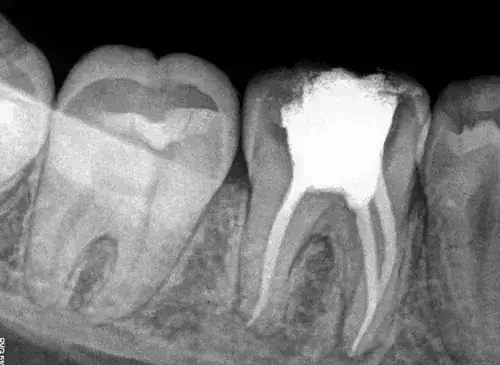- Home
- Medical news & Guidelines
- Anesthesiology
- Cardiology and CTVS
- Critical Care
- Dentistry
- Dermatology
- Diabetes and Endocrinology
- ENT
- Gastroenterology
- Medicine
- Nephrology
- Neurology
- Obstretics-Gynaecology
- Oncology
- Ophthalmology
- Orthopaedics
- Pediatrics-Neonatology
- Psychiatry
- Pulmonology
- Radiology
- Surgery
- Urology
- Laboratory Medicine
- Diet
- Nursing
- Paramedical
- Physiotherapy
- Health news
- Fact Check
- Bone Health Fact Check
- Brain Health Fact Check
- Cancer Related Fact Check
- Child Care Fact Check
- Dental and oral health fact check
- Diabetes and metabolic health fact check
- Diet and Nutrition Fact Check
- Eye and ENT Care Fact Check
- Fitness fact check
- Gut health fact check
- Heart health fact check
- Kidney health fact check
- Medical education fact check
- Men's health fact check
- Respiratory fact check
- Skin and hair care fact check
- Vaccine and Immunization fact check
- Women's health fact check
- AYUSH
- State News
- Andaman and Nicobar Islands
- Andhra Pradesh
- Arunachal Pradesh
- Assam
- Bihar
- Chandigarh
- Chattisgarh
- Dadra and Nagar Haveli
- Daman and Diu
- Delhi
- Goa
- Gujarat
- Haryana
- Himachal Pradesh
- Jammu & Kashmir
- Jharkhand
- Karnataka
- Kerala
- Ladakh
- Lakshadweep
- Madhya Pradesh
- Maharashtra
- Manipur
- Meghalaya
- Mizoram
- Nagaland
- Odisha
- Puducherry
- Punjab
- Rajasthan
- Sikkim
- Tamil Nadu
- Telangana
- Tripura
- Uttar Pradesh
- Uttrakhand
- West Bengal
- Medical Education
- Industry
Cyclic fatigue resistance of heat-treated NiTi endodontic files reduces at body temperature compared to room temperature

Nickel-titanium (NiTi) engine-driven instruments continue to be the mainstay in performing mechanical debridement and shaping during endodontic treatment. It has revolutionized the root canal preparation technique by decreasing operator fatigue, time, and procedural errors associated with manual instrumentation.[1] Despite the increased flexibility, a major concern related to their use is the possibility of intracanal separation.
Cyclic fatigue resistance of heat-treated NiTi endodontic files reduces at body temperature compared to room temperature, suggests a recent study published in the Journal of Conservative Dentistry.
The aim of this systematic review was to compare the effect of body temperature (I) on the cyclic fatigue resistance (O) of nickel–titanium (NiTi) endodontic instruments (P) to that of room temperature (C). Methods: The study was registered in the PROSPERO database (CRD42020204286). A systematic search in PubMed, Scopus, Web of Science, Google Scholar, and OpenGrey was conducted in English until December 31, 2021. In vitro studies comparing the cyclic fatigue resistance of NiTi instruments at the body (35°C ± 2°C) and room temperature (20°C–25°C) were included. Eligible studies were evaluated for risk of bias and meta-analyzed to estimate the effects.
Results:
- Twenty-one studies out of 347 met the criteria for inclusion.
- The meta-analysis included six studies (n = 215) with comparative study parameters.
- The overall effect sizes were significantly different indicating that the mean values at room temperature were significantly higher.
- The effect sizes for full rotary motion and reciprocating motion were not significantly different Heterogeneity was high (I2 = 94%).
- Sensitivity analysis revealed that the SMD values were not significantly different (P > 0.05) from the overall effect size, indicating that none of the studies had an effect on the overall effect size.
Thus, within the limitation of the study, the cyclic fatigue resistance of heat-treated NiTi endodontic files is significantly reduced at body temperature when compared to room temperature. Cyclic fatigue testing should be conducted at simulated body temperature.
Reference:
Selventhra Savitha, et al. Effect of body temperature on the cyclic fatigue resistance of the nickel"titanium endodontic instruments: A systematic review and meta-analysis of in vitro studies DOI: 10.4103/jcd.jcd_55_22
Dr. Shravani Dali has completed her BDS from Pravara institute of medical sciences, loni. Following which she extensively worked in the healthcare sector for 2+ years. She has been actively involved in writing blogs in field of health and wellness. Currently she is pursuing her Masters of public health-health administration from Tata institute of social sciences. She can be contacted at editorial@medicaldialogues.in.
Dr Kamal Kant Kohli-MBBS, DTCD- a chest specialist with more than 30 years of practice and a flair for writing clinical articles, Dr Kamal Kant Kohli joined Medical Dialogues as a Chief Editor of Medical News. Besides writing articles, as an editor, he proofreads and verifies all the medical content published on Medical Dialogues including those coming from journals, studies,medical conferences,guidelines etc. Email: drkohli@medicaldialogues.in. Contact no. 011-43720751


